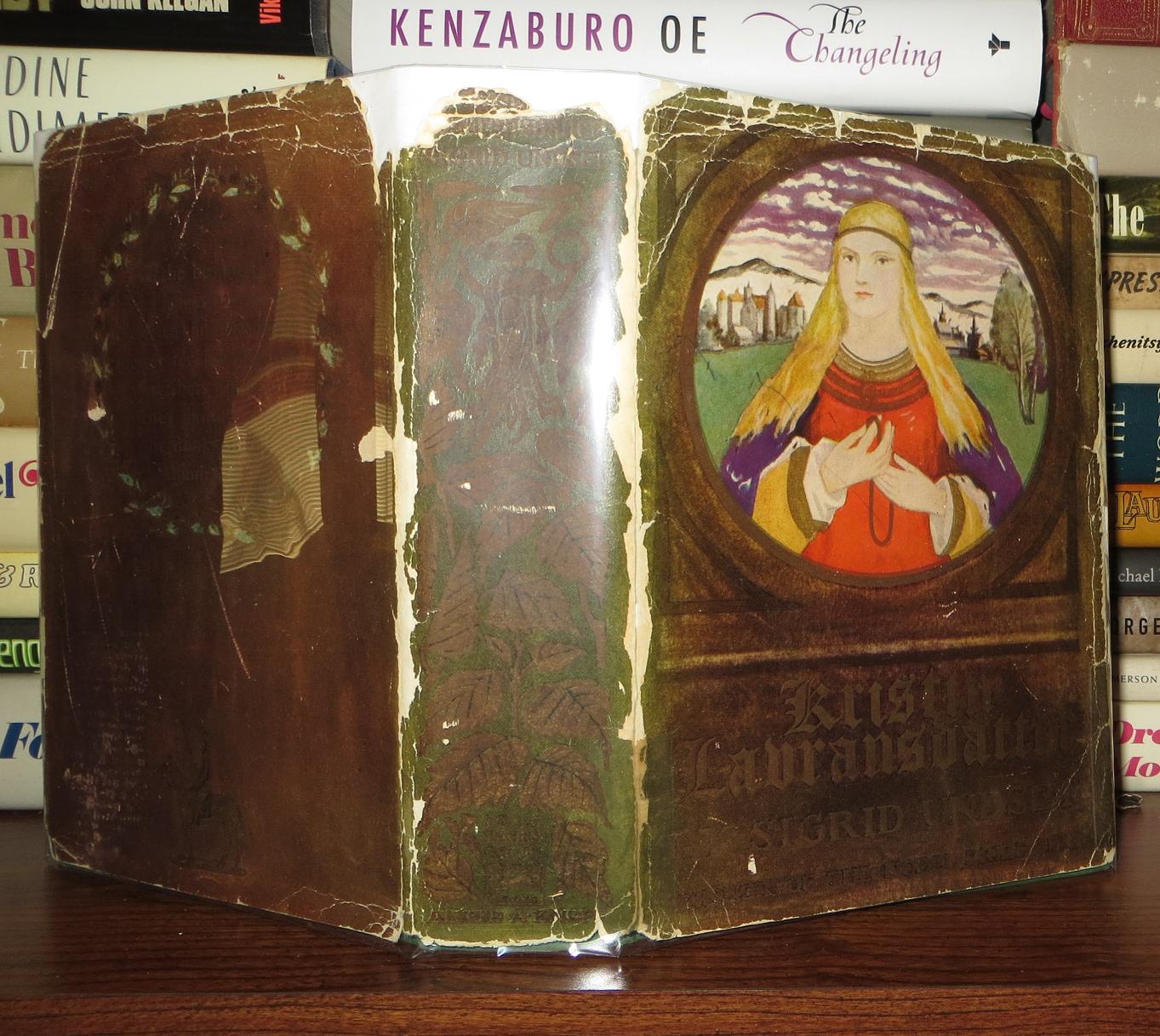

How to describe the effect of these books – what is so piercingly compelling about them? The experience of Undset’s cool, fluid, and methodical prose – especially with Nunnally’s exactingly clean translation – is immersive, hypnotic, yet, frankly, at times boring. (It made a lot more sense to me when I read that Undset’s father was an archaeologist and her mother his secretary/illustrator: she grew up immersed in history.) This all plays out against a medieval setting that is rendered so vividly and naturalistically that it seems as if Undset is reporting directly from that century. The conflict between personal passion and social responsibility, the torment of guilt, the struggle to understand what it is to live a Christian life, hypocrisy, infidelity, the temptation of cruelty, and the closeness of mortality all weigh heavily on the characters. They concern themselves with a span of decades in the lives of aristocrats in a severe land, but viewed through incredibly intimate, often stream-of-consciousness renditions of women’s experience in particular. The way I keep on describing these books (which won the 1928 Nobel Prize) to people is a medieval Scandinavian version of Anna Karenina. Meanwhile, foolhardy Erlend is drawn further and further into the turbulent politics surrounding the fate of the Norwegian throne at the time, with eventually ruinous consequences for their family’s fortunes. Her fervent embrace of Christianity serves sometimes as a comfort, and sometimes as one of several wedges between her and Erlend.


In The Wife, Kristin struggles to live with the guilt of the sins that she and Erlend committed in the course of clinging to their relationship, while now striving to lead her new household – where she is initially regarded with derision – with grace and strength. In The Bridal Wreath, Kristin grows from a quiet child into a quietly fiery – and occasionally cruel – young woman, and thwarts her parents’ plans for her future by flinging herself into a romance with the passionate but disastrously irresponsible nobleman Erlend Nikulausson. In early 1300s Norway, Kristin Lavransdatter is the eldest daughter of a charismatic, gentle, and adoring father, and a distant, melancholy mother. Scott, which are self-consciously archaic and expurgated significant passages. I read the recent translations from the Norwegian by Tiina Nunnally, after giving up on the original translations by Charles Archer and J. This is a review of the first two books in the Kristin Lavransdatter trilogy: The Bridal Wreath and The Wife.


 0 kommentar(er)
0 kommentar(er)
